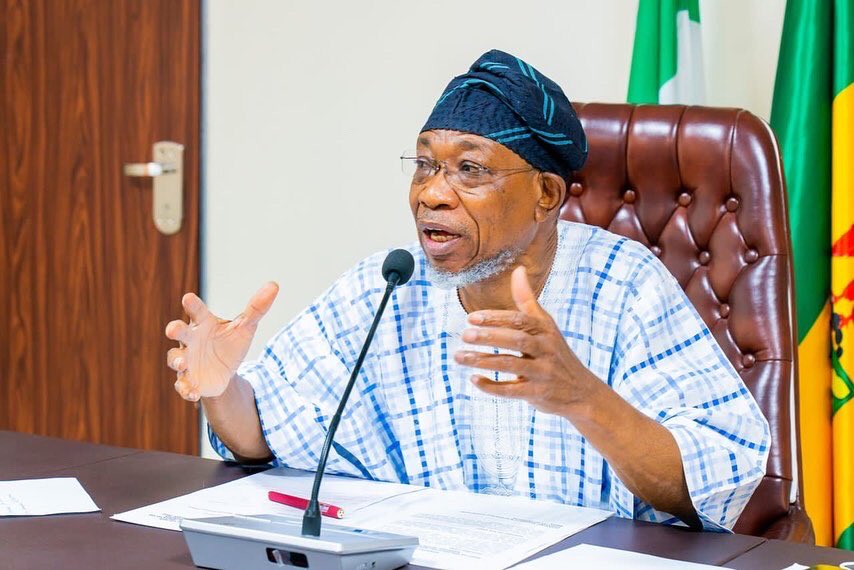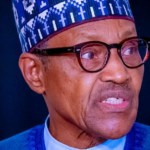On July 21, 2022, Nigeria’s National Security Council (NSC) presided over by President Muhammadu Buhari, rose from its meeting with a plan to ban the use of motorcycles, popularly known as Okada, as means of transport nationwide as part of measures to contain the lingering insecurity.
The Attorney General of the Federation (AGF) and Minister of Justice, Abubakar Malami, flanked by his Interior and Police Affairs counterparts, Rauf Aregbesola and Mohammed Dingyadi, told journalists at the Presidential Villa, Abuja, after the meeting that the ban became imperative as terrorists and bandits have made motorcycles their major means of transport.
He noted that in considering the ban, the council was placing national and public interests above individual interests.
The government’s proposal has the support of Anglican Bishop of Kubwa Diocese, Rt. Reverend Duke Akamisoko, who has been campaigning for outright ban on the use of motorcycles nationwide.
But the president of ACOMORAN (Amalgamated Commercial Tricycle and Motorcycle Owners, Repairs and Riders Association of Nigeria), Alhaji Adebayo Samsudeen, said there were about 40 million people riding Okada for a living in the country and that the ban would only compound the nation’s security challenges as motorcycles provide the commuters’ primary transportation needs while being the riders’ source of livelihood.
Simply put, Samsudeen states that it enhances “mobility for the middle and low income earners which, by extension, has contributed to an increase in production through an increase in self-empowerment.”
The pan-Yoruba socio-political organisation, Afenifere, also said such a ban would show lack of scientific thinking. Its national publicity secretary, Mr Jare Ajayi, said it “is fatally wrong!” It said believing such a ban “would put a stop to terrorism is not only wishful thinking, it amounts to an induced self-delusion that can only complicate the ailment that one is suffering from. Pursuing that line is leaving the substance to chase the shadow.”
Nobody is disputing the reality that terrorists and bandits employ motorcycles to invade communities and quickly escape. But it equally aids the transportation of people and goods, with its ability to travel on bad roads and quick responsiveness to public demands.
Therefore, a ban on motorcycles would inflate the poverty rate as millions of Nigerian families would be denied means of livelihood. It will sure swell Nigeria’s pool of unemployment and may flood more crimes and criminals into the mix.
The worry is the fact that such a proposal would come from the nation’s highest security organ, the National Security Council. This body should do more in devising creative initiatives to solve Nigeria’s insecurity and push for policies that empathise with the citizenry who continue to suffer the brunt of misguided government policies.
In any case, the jury is yet out on whether such a ban would help. This is because in September last year, the Nigerian Communications Commission (NCC), on the advice of the governors of five northwestern and central region states of Zamfara, Katsina, Sokoto, Niger and Kaduna, blocked mobile networks to prevent the terrorists and bandits from communicating with collaborators. But banning the mobile networks did not stop the killings and abductions. Moreover, government should always look at precedents. The ban of motorcycles by Kano, Zamfara, Sokoto, Kebbi, Katsina, Kaduna and Niger states in recent past did not stop killings, kidnappings or destruction of property and disruption of the lives of people. These experiences ought to have shown that shutting down places or imposing bans is not the solution to the security crisis bedevilling the country.
The point is that the nation’s defence and security forces must learn to do their job of confronting the terrorists and bandits at their forest bases before they mount their motorbikes to attack towns, villages and facilities.
Nigerians are yet to understand why the security agencies would dutifully wait for them to come out of their camps before they are engaged. It is time to deploy the aircraft, helicopters and drones procured with huge resources and finish up the job.
The challenge of insecurity does not require any knee-jerk or quick fix measures but deep thinking and action. So, this proposed ban is a hasty and lackluster decision that did not take into consideration the exacerbating effect of the economic implications. Has the NSC considered the fact that in a nation bereft of effective mass transit system, it is the major source of transportation within cities, communities and the remote villages which lack good road network? The proposal amounts to taking an easy way out of a serious national threat. If, like everyone knows, the attacks are aided by these motorcycles, why not licence them first to know the number of legitimate ones. The point to start is to have all motorcycles registered as it is ordinarily a security risk not to have marks or verifiable identification on them or the riders.
The bottom line is for Nigeria’s defence and security agencies to be more proactive and use surveillance technology instead of inadvertently inflicting further pain on the already traumatized citizens.
The NSC should not be associated with such a pedestrian decision. It shouldn’t have been contemplated in the first instance. We should not in the quest for solution create another problem.

 Join Daily Trust WhatsApp Community For Quick Access To News and Happenings Around You.
Join Daily Trust WhatsApp Community For Quick Access To News and Happenings Around You.


